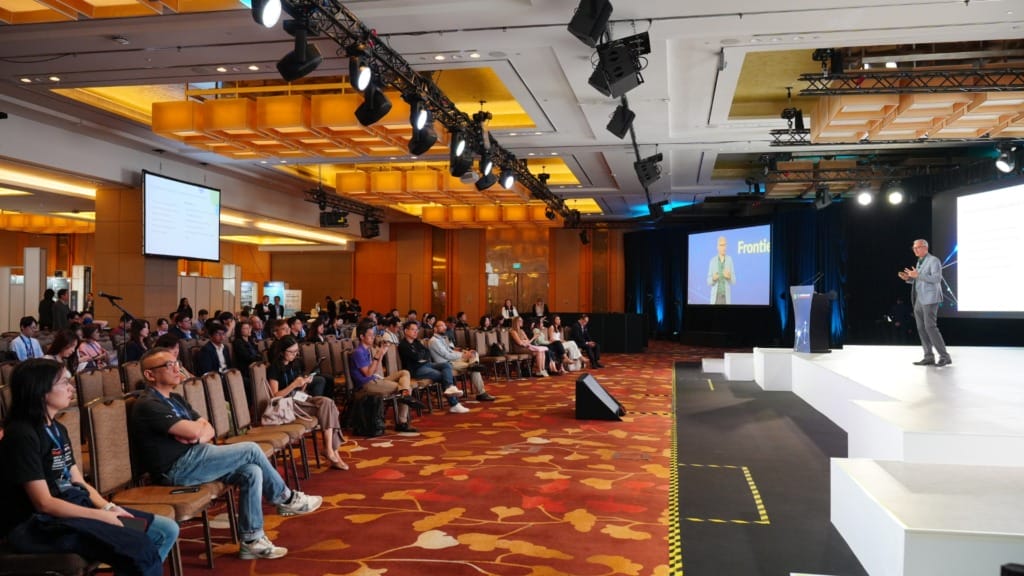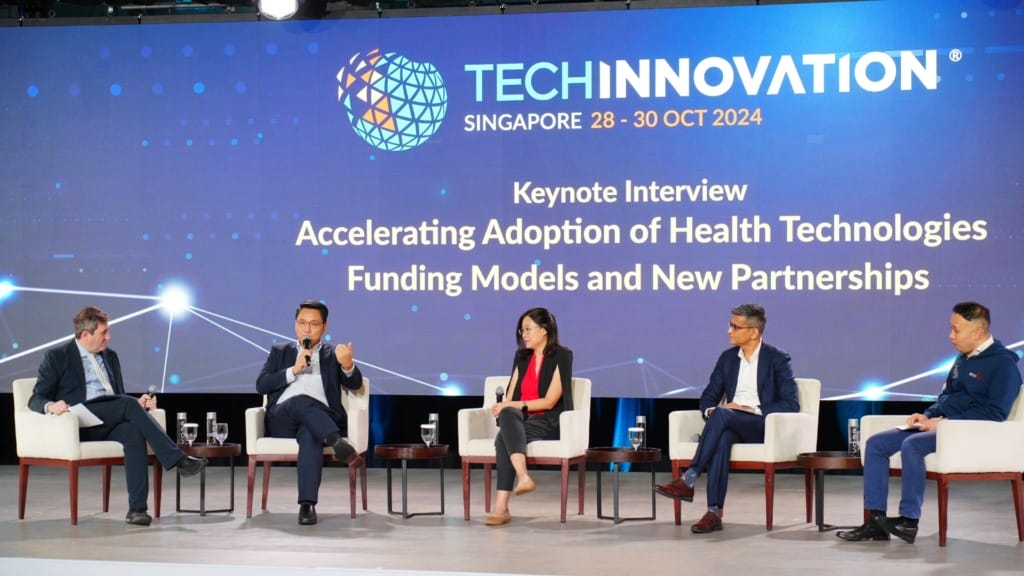Day three of TechInnovation 2024 brought a forward-looking focus on healthcare under the theme “Healthcare Horizons: Defining Tomorrow’s Wellness.” The day’s agenda was packed with insightful panels, keynotes, and discussions, all designed to address the future of healthcare. With nearly 5,000 delegates and 53 exhibitors from eight countries, the conference has become a pivotal event for industry leaders and healthcare professionals who are working to make healthcare more accessible, preventive, and patient-centred.
This year’s event highlighted innovations in areas like femtech, digital health, and funding strategies for expanding healthcare across Asia Pacific, where cultural and regulatory differences pose unique challenges. These discussions encouraged collaboration among governments, private investors, and healthcare providers to build a robust, inclusive healthcare future.
Pioneering prevention-focused healthcare
The day began with a keynote titled “Frontiers of Healthcare” by Saurabh Patel, Vice President of Special Projects at IHH Healthcare. Patel addressed the challenges of maintaining sustainability in treatment-centred healthcare systems and emphasised the importance of a shift towards prevention and wellness. Drawing on Singapore’s Healthier SG programme as an example, he highlighted how public health initiatives can drive sustainable wellness by focusing on proactive health management.

Patel pointed to technologies like wearable and remote monitoring devices as critical tools for advancing preventive care. “One key driver in advancing preventive healthcare is wearable and remote monitoring technology. It enables doctors to continuously track your health data, offering real-time insights into various health parameters,” Patel stated. He noted that telemedicine and remote monitoring not only empower patients but also enable healthcare providers to offer more personalised care, shifting the focus towards early intervention and better management of chronic conditions. Patel underscored that “in healthcare, our focus must be on proactive adaptation; embracing technology and preventive care as the new foundation for sustainable health.”
Femtech in Asia: Expanding horizons
A key panel discussion, “Expanding Horizons in Femtech for Asia Pacific,” offered insights into the growing field of femtech. Moderated by Lindsay Davis, Founder of FemTech Association Asia, the panel included experts from organisations such as Osler Health International, Hormony, INEX Innovate, and National University Hospital. Davis opened the session by introducing the femtech industry’s rapid growth in Asia, noting that Asia’s femtech sector is the third largest globally, representing around 14% of femtech businesses worldwide.
The panellists explored the role of technology in addressing women’s health, from menstrual health and fertility to menopause, with a focus on making healthcare more inclusive and accessible. Emphasising the need for collaboration across Southeast Asia, the panellists discussed how to overcome cultural and regulatory hurdles that can limit access to these innovations. Dr Tsin Uin Foong, Co-Founder and Chief Medical Officer at Osler Health International, shared her vision of a “digital twin” platform, stating that “having everything on a single platform which lets me support patients even when they’re not physically present… is a powerful step toward truly personalised medicine and a tailored path to longevity.”
The panel emphasised the importance of developing partnerships to support femtech growth, noting that collaboration can help overcome regional barriers and expand access to health innovations for women, ultimately building healthier communities across Asia Pacific.
Funding and partnerships to drive health tech adoption
The afternoon session “Accelerating Adoption of Health Technologies: Funding Models and New Partnerships” shifted focus to the investment and partnership strategies essential for advancing healthcare technology. Moderated by Leo Lewis of the Financial Times, the discussion brought together prominent figures from Foundation Healthcare Holdings, Meracle, the Asian Development Bank, and Bintang Capital Partners. They discussed how public-private partnerships, impact-driven investors, and insurance initiatives could expand access to preventive health services in Southeast Asia, especially for older adults and rural communities.

The panellists explored the importance of data-sharing and regulatory flexibility to support innovative health solutions. By aligning public and private sector goals, they noted, healthcare providers can help deliver affordable and long-lasting care solutions. For instance, Hong Huei Lee, Co-founder of Foundation Healthcare Holdings, emphasised that bridging healthcare gaps requires flexible policies and collaborative funding models. These can support preventive care technologies that address the region’s healthcare needs, particularly in underserved areas.
Design thinking and practical innovation for SMEs
Cheaw Hwei Low, Innovation Advisor at IPI, conducted a hands-on masterclass on design thinking, focusing on its potential to help SMEs in the healthcare sector. Titled “Mastering User-Centered Innovation with Design Thinking,” this two-hour session was aimed at equipping SMEs with tools to integrate user-centred principles into their strategies. Low illustrated how breaking down complex challenges and prioritising user experience could lead to more practical and scalable healthcare innovations.
The masterclass provided insights on how companies can drive growth through a customer-focused approach, highlighting that practical, user-centred solutions are essential for addressing the unique needs of patients in diverse healthcare contexts. This approach allows companies to foster sustainable growth by ensuring their innovations are both accessible and impactful.
Exhibition showcases healthcare and tech innovation
The TechInnovation 2024 exhibition showcased 53 exhibitors who presented cutting-edge advancements in AI, sustainable technology, healthcare wearables, and food-engineered products. With over 150 pioneering innovations on display, the exhibition covered everything from urban living solutions to health and wellness technologies. The exhibition floor became a lively hub where healthcare and technology professionals connected, exchanged ideas, and explored solutions that could reshape healthcare.
TechInnovation 2024’s third day concluded with a renewed sense of optimism and collaboration among attendees, reflecting the event’s role as a premier platform for driving healthcare innovation. By addressing key topics in femtech, funding, and prevention-focused care, the conference has highlighted the potential for new technologies and partnerships to make healthcare more accessible and sustainable in Asia Pacific and beyond.





